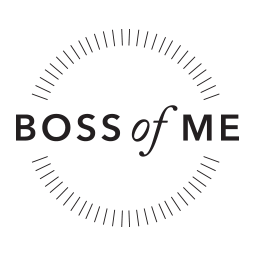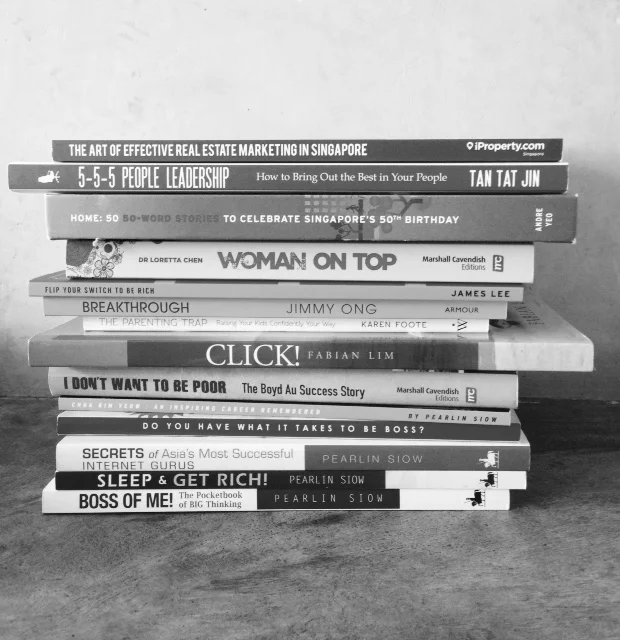“I’m an author. We don’t want to lead. We don’t need to follow. We stay home and make stuff up and write it down and send it out into the world, and get inside people’s heads. Perhaps we change the world and perhaps we don’t. We never know. We just make stuff up.”
- Neil Gaiman
Before we roll out the step-by-step strategies of creating a winning book proposal, let us explore the two primary areas that will guide your trajectory in the publishing world: self-publishing vs. traditional publishing. If you’re thinking about going digital first, and then getting a print deal, read on. If you’re wondering why you even need a publisher in these tech-empowering times, pay close attention.
To publish or self-publish? That is THE question.
Creating a book is an intimate experience. You give shape to your innermost thoughts and feelings, and share them with critics and other lovers of ideas and stories. And then you pimp that baby until the cows come home. How you do this is a very personal decision.
When we talk about publishing, we have to break it down into two categories: self-publishing and traditional publishing. If you want to manage the entire production and distribution process yourself - that’s self-publishing. Or, a publisher will do it for you - that’s referred to as a traditional deal. There’s also a middle ground between these two where a publisher will assist you with publishing your book for a service fee and production costs – that’s called contract publishing (or vanity press in America).
And then there’s digital publishing, on the Internet, in the form of E-books. Obviously you can self-publish digital material, and, after you get a deal with a traditional publisher, they may choose to take your printed product and release a digital version.
So, to self-publish or to sign with a publishing house? Well, your answer also depends on more than just what your motivation is. Profit or creative gratification aside, it matters how talented you are and how timely your material is. In other words, are you really crazy, or just a little bit crazy? The best way I’ve found to walk through this landscape is on two paths, according to your top priorities. Here they are: The pros and cons...
The Pros + The Cons
Distribution
Let’s start with the most important aspect of making a commercially successful book. Forget content and design, forget marketing and PR - for just a moment. Getting your product into the hands of booksellers and book buyers should be your A-1, paramount, TOP priority. We want people to buy and read your work.
Self-Pub: If you choose to self-publish, distribution will be your greatest hurdle. In the eyes of major book chain buyers, you’re likely a nobody. The head buyer at Books Kinokuniya has established relationships with sales reps from publishing houses. They schmooze at book shows and order dozens and dozens of titles at a time for the upcoming season. Problem is: these people won’t even take your call. You will have to hire an independent distributor to pitch your title.
Or... you can go to local, independent bookstores (like Books Actually) and pitch your book yourself. But you’ll need to put your armour on and your best smile. Be prepared to schlep books in your car trunk for weeks, months even. The novelty could wear out fast.
Pub House: Distribution is done for you. It’s that simple. This is the single most important reason to try to get yourself a book deal. Publishing houses have tentacles that reach far into book shows and bookstores across the planet. This is the essence of their power. You want that.
Design
Self-Pub: Guess what? You’re now a book designer, copy editor, colour expert, typography and paper specialist - and you thought you were just someone with something important to say. Even if you hire out your book to a graphic designer (and you probably should, for anywhere from $500 to $10,000 in design fees depending on the type of book you’re producing), the aesthetics of the book relies on your approval. Do you know what cover will appeal to consumers next season? Do you have access to the recycled paper printer you want? For better or for worse, you will have total creative control. Could be a painful learning curve. Could be a beautiful thing.
Pub House: You may have zero say in how your baby is dressed. Could be a disaster. Could be a breeze. Fortunately, the end result is often far better than you’d imagined, or could have created on your own (remember, they’ve been doing this a while and know a thing or two about not making you—or them—look bad).
Time to Market + Time to Live
Self-Pub: The turnaround time with a self-published book can be as fast as you can drive the process. Once it’s written and edited, you can have a print book in your hands in as little as two months. Zoom. Digital books, even more zoom.
Pub House: Prepare to wait for at least six months before you see your book in stores. Unless you’re writing about a time-sensitive topic of major cultural relevance (like, a nuclear plant explodes and you happen to be working on a book about How to Survive a Nuclear Plant Explosion), then you’re likely looking at six months up to two years from the time you sign your publishing contract to the day your book smiles down at you from the bookstore shelf. That’s a long time, even in dog years. You might be a different person by then with a different business model, partner. So, make sure your book’s message feels universal and timeless.
Even if your book gets done quickly, there’s this thing called the publishing calendar - whereby the publisher determines which season your book will be released. (War exposés don’t sell well at Christmas time, and every love author wants to ride the trajectory of Cupid’s arrow in February - with only so many slots.)
Traditional publishing is a lot like the fashion industry. There are a lot of players involved and they each need time to do their job: the editing department, the designer, the printer, the marketing team selling to stores two seasons in advance, the publicity team pitching to media with up to nine months of lead time (and believe us, media coverage is your BFF), and the warehouse who needs time to ship to stores.
Creative Control
Self-Pub: You own your copyright. This means that you’re free to re-purpose your stuff in any way you feel moved. Publish it on other sites, repeatedly publish excerpts from your book on your own website, and put it in any print form you want. You can make improvements. When you self-publish, you’re at full liberty to create a 2.0, new-and-improved version of whatever you do, as quickly as possible.
Pub House: When you get a traditional publishing deal with a publishing house, typically a contract will state that you only have the right to re-purpose, to re-use approximately 20 percent of the material from that book for yourself. This makes sense in terms of the publisher wanting to drive people to purchase your book, but it stinks in terms of future product development and raising your visibility online. With the exception of going from hard cover to paperback and making minor editorial additions, traditional publishing is a one-shot deal.
That being said, the intellectual strength that your publishing team could offer might take your book from good to amazing. If you’re blessed with a thoughtful editor, he or she will take your work to the next level and in doing so, not just make your work more lucid and rich, but may very well influence the quality of your writing for the rest of your career. The power of this cannot be understated. Nor can the potential agony of getting an editor who’s a dud. Your relationship with your editor can feel like a magical marriage, or it can feel like prison torture.
The Money
Self-Pub: You make 30-40 percent of the profit. Woohoo! No split with the publisher. Where did the other 60-70% go? The distributor who gets your books to the bookstores takes about 60-70% of your book sales. Unless you're shlepping the books to indie bookstores yourself, then you get to keep 100% (after expense). If you do it right, you can be earning as much as $10 bucks on a print book, perhaps more, and certainly much more profit per unit on a digital product. Hopefully that’ll be enough to re-coup the capital you put in to fund the book – ghostwriter, freelance editor, graphic design, printing costs, administrative support. It could all add up to thousands of dollars - easily.
You can invest your revenue into future publishing projects, you can put food on the table, or you can take the time you need to go find yourself a traditional publisher, which will likely take many months.
Pub House: A book advance is an incredibly civilised concept. You get paid in advance to writeyour book. How very renaissance. Unfortunately, this does not happen in Singapore. You typically get no money when you sign your contract so don’t quit your job yet. Boohoo.
Reality Check #1: The vast majority of authors never make enough for them to quit their day jobs, simply because Singapore is too small to sell many copies. Even if you sell thousands of copies, your publisher takes a huge chunk of your book profits (90% to be specific - essentially paying them back for their investment) – so what you end up with is usually in the lower range of a whopping $2 per book.
Reality Check #2: The credibility and cachet of being a published author, especially with a publishing house (as opposed to self-published), increases your earning potential all the way around. It’s a badge of honour that can bring in speaking gigs, higher consulting fees, and media exposure for a very long time.
Publicity + Marketing
Self-Pub: Got contacts? You better have. Facebook friends may not get you on the bestseller list. You need editors’ emails and TV connections. It’s time consuming but so critical to your success. Not your thing? You’re looking at a minimum of $5,000 to hire a publicist to run a decent campaign for you.
Pub House: They’ve got contacts - oodles of them. Media editors and producers are accustomed to being pitched by publishing house staffers and PR firms - not directly by authors themselves. Most publishing companies have a scope of contacts that very few of us have. They will have a marketing team who will help develop and execute the overall strategy of how you and your book are going to be pitched to the media. You’re going to get a marketing expert who works with major retailers and unique outlets to get your book sold in those venues.
That said; don’t think for a minute that your publisher will take your book to the moon and tout it long term. Nope. It’s a rare exception that any book is nurtured beyond a very concentrated, one-time push to the media that lasts about, oh three weeks - if you’re lucky.
You have to stay in the driver’s seat of your campaign. Whether you self-publish or land a book deal - long-term publicity and marketing will ultimately be fueled by the strength of you and your team, and your combined stamina.
So, how are you going to get your work out into the world?
It takes a village to raise a book. Ask yourself if you want to be a writer, or if you want to be a publisher. They’re very different businesses. Getting your work published - in print or in digital form is a huge logistical/administrational operation. It’s easier to pull off with all of the technology we have - blogging platforms, social media, and the numerous companies that can help with both physical and online distribution.
We’re sure you’re multi-talented. But, like most of us, your expertise and your passion, which ideally work hand-in-hand, are probably top-loaded in the area of creativity. You either need a publisher, or a very savvy dream team.
Publishing success takes more than pure talent. You need a remarkable combination of tough-as-nails stamina and romantic idealism. Either direction you take - self-publishing or landing a book deal - you will need to be steely, you will need to embody passion, and you will need to take your show on the road - virtually or otherwise.
Who’s What for Writers
Agent: Your literary agent (or book or publishing agent) is the advocate who’ll help you sell your manuscript to a publisher. They’ll act as your talent rep, and negotiate your book deal—generally keeping a 15-20 percent commission fee, in return. We don’t have agents in Singapore unfortunately. YOU are your own agent! Boohoo x 2.
Publisher: Your publisher (or publishing house) is the institution that accepts your manuscript for printing and distribution. Publishers can be large and looming (Marshall Cavendish, Flame Of The Forest) or small and boutique (Math Paper Press, Write Publishing). Many publishers have a niche slant or focus — for example, Armour Publishing favours books with a Christian slant, while Epigram likes comics.
Editor: Editors are most often the players who actually “buy” books for the publishing house. While there are a number of people involved in deciding if a publisher is going to take on a particular book/author, the editor heavily influences the decision. They will likely be the first point of contact you will make. Your book proposal is written with them foremost in mind. Some editors act as a project manager and every aspect of your book project is funneled through and guided by them - from cover design to foreign rights sales. Your editor will run through your manuscript with a wide-toothed comb (identifying confusing arguments or hazy prose), but mostly with a lens to improving structure and sensibility. The right editor can make great writing even greater. Shower them with gratitude (or chocolates!).
Copy editor: After your content editor has massaged your manuscript into a mellifluously-flowing thing of beauty, your copy editor (either in-house at the publishing house, or someone they hire for you outside of the company), will take a fine-toothed comb to the text, teasing out typos, wonky punctuation, and fact checking like a crazed detective. (That doesn’t mean they always get it right, however. Always be sure to read your edited work several times before your pub date. You know your work better than anyone, and will thankfully have time to catch the one-liners they didn’t get or a transplanted comma that inaccurately alters the meaning of your sentence.)
Ghostwriter (aka me!): Your ghostwriter is a hired-gun who interviews you, curates story pieces, and writes sections of your manuscript - or in some cases, the whole shebang - in your voice. Some ghostwriters get cover or title-page credit for their work - others are “silent partners” (who almost always want some kind of thank you in your acknowledgment section). Celebrity ghostwriters can command upwards of $12,000 - to $25,000 for a finished book. Good ghostwriters come with publishing house connections and can help get you a book deal too! With a staggering number of books being ghostwritten these days, those who do this for a living are in demand and can pick and choose the projects that sing to them.
Freelance Editor: If you want another set of eyes and a brainstorming buddy as you go, but don’t want to bring on a co-author or hire a ghostwriter, finding a freelance editor to assist you may be your most effective option. Not to be confused with the editor at a publishing house, this is someone you hire before you approach publishers, to help up-level your work and your confidence. Fees vary wildly, but expect to pay a minimum of $50 an hour, and much more for those with the biggest resumes. The idea is that by investing in yourself (and being as good as you can be), publishers will be more likely to invest in you.
PR Firm or Publicist: Your PR Firm is responsible for getting you (and your book) into the public eye, both before and after your book has launched. They’ll help you refine your target audience, develop an elevator pitch and press release, secure media placement and interviews, and make critical industry connections.
Post Script:
Unless you have been hiding a tome of books, you would have noticed that everyone and their grandma is crowdfunding. Here is one success story. The perks of doing this: you get to keep almost all the book profits, it’s eco-friendly and most of all, looks fun! Keen to give it a try? Websites to check out:
· www.publishizer.com
· www.indiegogo.com
· www.kickstarter.com






